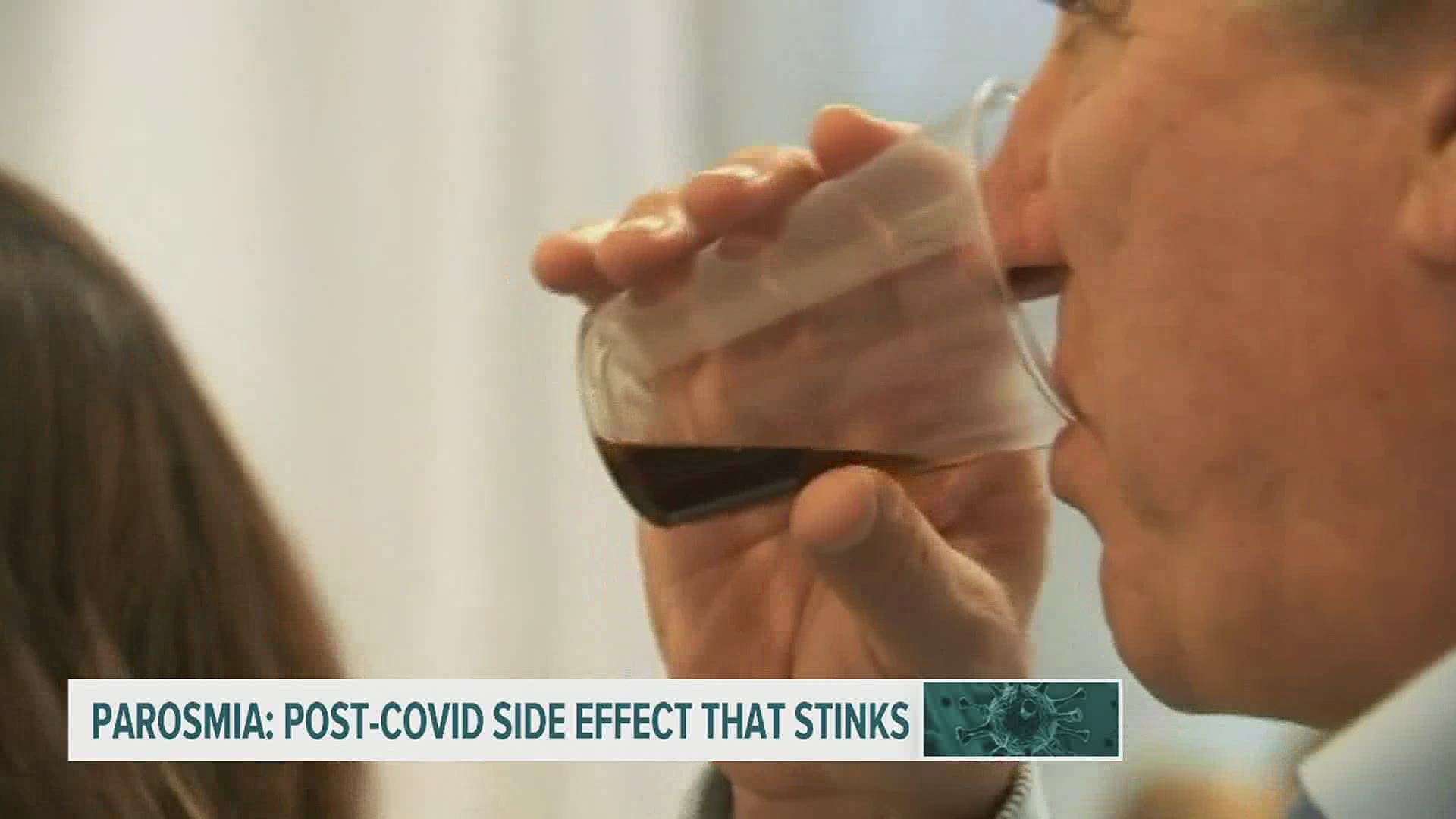YORK, Pa. — Loss of smell is a main symptom many people experience when they get COVID-19. Most people who experience it recover within a month and are relieved when they can finally smell again. However, not everyone agrees. A small portion of people have been developing what's called Parosmia. So what exactly is it?
Imagine picking up a fresh cup of coffee in the morning but when you go to take your first sip, you smell rotten hot dogs! That's exactly what has been happening to Camille Hunt of York County, who got COVID-19 right after Christmas. No fever, no cough, just a bad sinus infection that left her feeling crummy for 10 days. shortly after her diagnosis though, she started experiencing one of the main symptoms of the virus- loss of smell. “I didn’t actually lose my taste and smell completely, things were a little skewed but not completely gone. I made steamed shrimp on new year’s eve and they tasted sweet to me, which is odd,” Camille said.
Over the next month, things started to change, going from odd to down right bad. "My coffee started tasting weird in the morning and I thought maybe something was wrong with our coffee maker, but now it tastes like hot dog water,” she said.
Dr. Eugene Curley is an infectious disease expert for Wellspan Health. He says the condition Camille and many others are experiencing after recovering from COVID-19 is called Parosmia. It’s the medical term for when someone’s sense of smell is altered, and not in a good way. "It seems to be a small percentage of patients but because everyone doesn’t report all of their symptoms or see a doctor, it’s hard to know how widespread it is,” Dr. Curley said.
The good news is that about 90 percent of people who develop parosmia seem to recover within a month, without treatment. Camille, though, hasn’t been as lucky. “The other night I made spaghetti for my family, something I normally like to eat, but I couldn’t even swallow it, it was so disgusting to me, I had to spit it out. I think hotdogs are my least favorite food ever so ironically, I guess that’s how my body would have me believe I’m smelling and tasting,” she said.
Experts don't know who is most at risk of getting parosmia, but they do know the condition isn't typically dangerous and can be treated if severe. "There's still a lot of research going on but the three that I've seen being used are anti-inflammatories, steroids and olfactory training," said Dr. Curley.
So when should you call a doctor? Dr. Curley says if you experience symptoms for more than a month, you should give your primary care physician a call.

